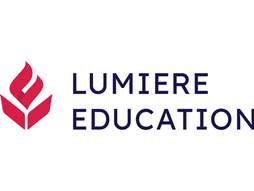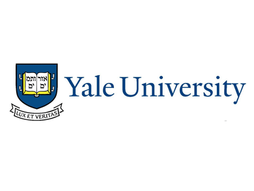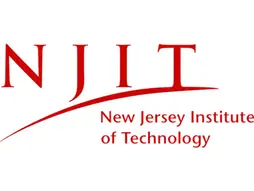Physics Brawl - Should You Participate?
Engaging in physics competitions can be valuable for high school students. These intellectual contests aren't just about showcasing knowledge; they're about honing skills that extend far beyond the realm of physics.
Physics competitions also illuminate the beauty of advanced concepts, fostering a deeper appreciation for the subject. Through collaboration with like-minded peers, participants expand their horizons and forge lasting connections.
Moreover, participating and winning in contests such as the Physics Brawl, demonstrates your skill and passion for the subject. Admissions officers are looking for highly motivated students that take the extra step to participate and engage with competitions and programs outside of school. Whether students aspire to excel in college or careers, participating in physics competitions equips students with the tools and mindset needed to thrive.
The Physics Brawl, an annual online physics contest hosted by FYKOS, has been capturing the attention of high school students worldwide since its inception in 2012. With its unique format and emphasis on teamwork, problem-solving, and critical thinking, the competition has become a platform for budding physicists to showcase their skills. In this blog, we’ll take you through a deep dive of the competition, its competitiveness, its dates and deadlines, and pros and cons.
You can also take a look at some other physics competitions and research opportunities in physics that we’ve covered. Note that the following information is based on the most recent program, with dates subject to change but generally similar from year to year.
What is the Physics Brawl?
The Physics Brawl is an online physics contest that has been hosted annually by a group of university students (mostly from the Faculty of Mathematics and Physics, Charles University) who organize physics focused educational events. The competition hosted roughly 1,000 teams from dozens of countries around the world.
This international online competition is formatted as a three-hour event where teams of students work together to quickly solve physics problems. Teams are categorized into three groups: category A, category B and category C (“The highest category is category A, a lower one is B and the lowest one is C). Categories are assigned to teams based on the team’s mean coefficient of each individual team member.
Coefficients are determined on the number of years a student has left until graduation (see ‘Organizational Regulations of Physics Brawl Online’ for more detailed information). Each category has a separate results table, but all categories share the same problem set and general rules. This unique format allows physics lovers of all high school ages and knowledge sets to equally participate.
Within the competition there are seven problems available, once a problem is solved another is subsequently given. For each solved problem the team is awarded with points. The team with the most points at the end of the allotted time wins. To which they will be awarded fun prizes and “undying glory”. Take a look at last year’s problems and solutions for an idea of what this year’s competition might entail.
Who is Eligible?
Any high school-aged student from any country is able to participate. Each participant can create a team of other students from their area with a minimum of one person to a maximum of five teammates per team.
What are the Application Requirements?
Registration is open from September 1 until November 22. To participate in Physics Brawl Online, you need to pre-register at https://physicsbrawl.org. The registration period typically occurs annually in the same month, meaning next year’s competition registration deadline will fall around the end of November. The competition will be held on November 22, 5:00 - 8:00 p.m. CET.
How Competitive is the Physics Brawl?
Acceptance into the contest is non-competitive, one simply needs to register. During the competition students are able to use many tools to help solve the seven available problems, but they cannot communicate with the other teams. On the other hand, the competition within the contest is highly ambitious; there is only one winning team out of the hundreds of participating teams worldwide.
What are the costs?
The contest is free to everyone who wishes to participate.
What are the Prizes?
Mugs and towels, T-shirts and hoodies, canvas bags, Wolfram Mathematica software, License to Orgpad, License to Avast.
Pros:
1. The Competition Promotes Teamwork:
The Physics Brawl is a competition that promotes teamwork, collaboration, and communication. Allowing students to sharpen their problem-solving and analytical abilities while working alongside their peers. In such a competition, participants collaborate to unravel complex physics challenges, mirroring real-world scenarios where diverse perspectives are key.
Through joint problem-solving, team members learn to communicate ideas effectively, listen to different viewpoints, and collectively devise strategies.
When it comes to university applications, the significance of teamwork cannot be overstated. Universities are not merely seeking students with exceptional grades; they are also searching for individuals who can thrive in diverse collaborative environments. Teamwork underscores your ability to communicate effectively, share ideas, and work harmoniously with peers from varied backgrounds. As universities increasingly emphasize holistic development, showcasing your teamwork experience highlights your capacity to contribute to group projects, engage in constructive discussions, and collectively achieve goals.
2. The Competition Can Help Hone Your Problem-Solving Skills.
Competing can improve your problem-solving, critical thinking, and analytical skills related to physics. Problem-solving skills are a cornerstone of personal and academic growth, and they hold particular importance for high school students aspiring to universities. Universities seek students who can navigate challenges effectively, and strong problem-solving skills demonstrate your ability to analyze complex situations, develop innovative solutions, and persevere through obstacles. A physics competition such as this can help hone important problem-solving skills.
3. The Competition has Zero Fees.
The Physics Brawl Online is entirely free to enter, making it accessible to a wide range of high school students without any financial burden. The fact that the competition is entirely free to enter enables students from diverse backgrounds and regions to participate, promoting inclusivity and accessibility.
4. Winning the Competition is a Great Achievement.
Participants receive a certificate displaying their team's score, providing recognition for their efforts and achievements in the contest. Winning a competition like this, and even simply just participating, is an experience that could round out your resume and CV. In addition, it is something you can speak about in college admission interviews or even job interviews to demonstrate your experience working as a part of a team to solve difficult problems.
5. Participate from Anywhere in the World.
This online competition dissolves geographical barriers, welcoming aspiring physicists from diverse backgrounds to engage in spirited competition. The virtual platform of the Physics Brawl erases the pressures of costly traveling allowing anyone from any socio-economic background an opportunity to participate.
Cons:
1. Limited Networking Opportunities
While the virtual environment of the Physics Brawl makes free participation possible, there are limited networking opportunities that an in-person event naturally provides. During the competition, you are unable to communicate with nonmembers of your team leaving little to no time to meet the other student participants. In addition, an online platform may limit the participation of those students who have slow to no internet connection.
2. Non-impactful for University Applications
Despite its educational value, the Physics Brawl may not significantly impact university applications or admissions, as it is primarily a fun contest rather than an academic credential.
3. Non-Monetary Prizes
While the contest offers exciting prizes like mugs, towels, and software licenses, it does not provide monetary rewards for the winning teams, which may deter some students from seeking financial incentives.
4. Language Barriers
The competition's languages being in Czech, Slovak, and English could prove challenging for students not proficient in these languages, affecting their performance during the contest.
Tips and resources to help you win the Physics Brawl
1. Thoroughly Understand the Fundamentals.
A strong foundation is key. Ensure you have a solid grasp of core physics concepts, as many problems stem from these fundamentals. Websites like Khan Academy and HyperPhysics can be immensely helpful.
2. Practice Solving Physics Problems Regularly.
Regular practice is essential. Solve problems from past competitions and textbooks to hone your problem-solving abilities. Websites like Physics Stack Exchange allow you to engage with challenging problems and learn from discussions.
3. Work on Your Time Management while Solving Problems.
Physics competitions often have a time limit, such as the Physics Brawl. Practice working through problems within the time constraints to improve your time management skills.
4. Know the Basics of Diverse Problem Sets.
Cover a wide range of topics during your preparation. Many competitions touch on various areas of physics, so familiarity with different subjects is crucial. Such topics to familiarize yourself with could include mechanics, electromagnetism, thermodynamics, optics, waves and sound, modern physics, fluid mechanics, kinetic theory of gasses, particle physics, astrophysics, quantum mechanics, relativity, nuclear physics, static electricity and magnetism, mechanical waves, geometric optics, kinematics and dynamics, and thermal physics.
5. During the Competition Read the Questions Carefully.
Misinterpreting questions can lead to errors. Take time to understand what's being asked before attempting a solution. A great online resource to help you improve your reading comprehension skills is CommonLit.
6. Review the Questions and Your Answers After the Competition.
Whether you win or not, review the solutions afterward. This helps you learn from mistakes and understand alternative approaches. Thy Physics Brawl posts their problems and solutions online after every annual competition.
Remember, winning isn't the sole goal of participating in a competition like the Physics Brawl. Participating in these types of competitions is an opportunity to challenge yourself, expand your knowledge, and connect with fellow physics enthusiasts. By embracing these strategies, you'll not only improve your chances of success but also enjoy the journey of mastering the intricacies of physics. Good luck!
Our Review
The Physics Brawl is undoubtedly an engaging and accessible competition that encourages teamwork, problem-solving, and critical thinking among high school students worldwide. While it may not carry the same level of prestige as certain other academic competitions, it offers valuable educational experiences and the opportunity to be recognized for one's physics skills. For students passionate about physics, seeking to challenge themselves, and looking for a fun and intellectual contest, the Physics Brawl may be the perfect fit. However, for those seeking opportunities with significant academic weight or financial rewards, other competitions might be more aligned with their goals.
The Physics Brawl is a fantastic platform for high school students to explore their passion for physics and have fun in a competitive environment. Its emphasis on teamwork, skill development, and free participation makes it a valuable experience for students worldwide, regardless of whether it is considered a prestigious competition in the traditional sense.
If you are passionate about conducting research in physics, you could also consider applying to the Lumiere Research Scholar Program, a selective online high school program for students founded with researchers at Harvard and Oxford. Last year, we had over 4000 students apply for 500 spots in the program! You can find the application form here.
Samantha Davenport is a socio-cultural anthropologist with five years of experience in qualitative and ethnographic research. Samantha holds a Masters of Arts in anthropology from Columbia University in the City of New York. With a deep passion for understanding diverse cultures and societies, she has dedicated her career to conducting extensive field research and analysis amongst a variety of research projects.
Image Source: Physics Brawl













